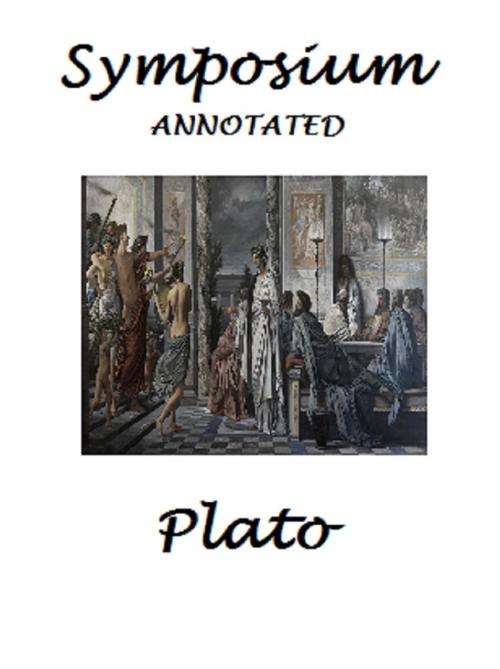Symposium (Annotated)
Nonfiction, Religion & Spirituality, Philosophy, Free Will & Determinism, Eastern, Ancient| Author: | Plato | ISBN: | 1230000309395 |
| Publisher: | Bronson Tweed Publishing | Publication: | March 5, 2015 |
| Imprint: | Language: | English |
| Author: | Plato |
| ISBN: | 1230000309395 |
| Publisher: | Bronson Tweed Publishing |
| Publication: | March 5, 2015 |
| Imprint: | |
| Language: | English |
The Symposium is a philosophical work by Plato dated c. 385â370 BC. It concerns itself at one level with the genesis, purpose and nature of love, and (in latter-day interpretations) is the origin of the concept of Platonic love.
Love is examined in a sequence of speeches by gentlemen attending a symposium, or drinking party. Each man must deliver an encomium, a speech in praise of Love (Eros). The party takes place at the house of the tragedian Agathon in Athens. Socrates in his speech asserts that the highest purpose of love is to become a philosopher or, literally, a lover of wisdom. The dialogue has been used as a source by social historians seeking to throw light on life in ancient Athens, in particular upon sexual behavior, and the symposium as an institution.
This edition has formatted for your reader, with an active table of contents. It has also been extensively annotated, with additional information about Symposium and also Plato, including an overview, literary form, historical context, opening narrative, outline, participants, information on the speeches, biographical information about Plato and his philosophy.
The Symposium is a philosophical work by Plato dated c. 385â370 BC. It concerns itself at one level with the genesis, purpose and nature of love, and (in latter-day interpretations) is the origin of the concept of Platonic love.
Love is examined in a sequence of speeches by gentlemen attending a symposium, or drinking party. Each man must deliver an encomium, a speech in praise of Love (Eros). The party takes place at the house of the tragedian Agathon in Athens. Socrates in his speech asserts that the highest purpose of love is to become a philosopher or, literally, a lover of wisdom. The dialogue has been used as a source by social historians seeking to throw light on life in ancient Athens, in particular upon sexual behavior, and the symposium as an institution.
This edition has formatted for your reader, with an active table of contents. It has also been extensively annotated, with additional information about Symposium and also Plato, including an overview, literary form, historical context, opening narrative, outline, participants, information on the speeches, biographical information about Plato and his philosophy.















